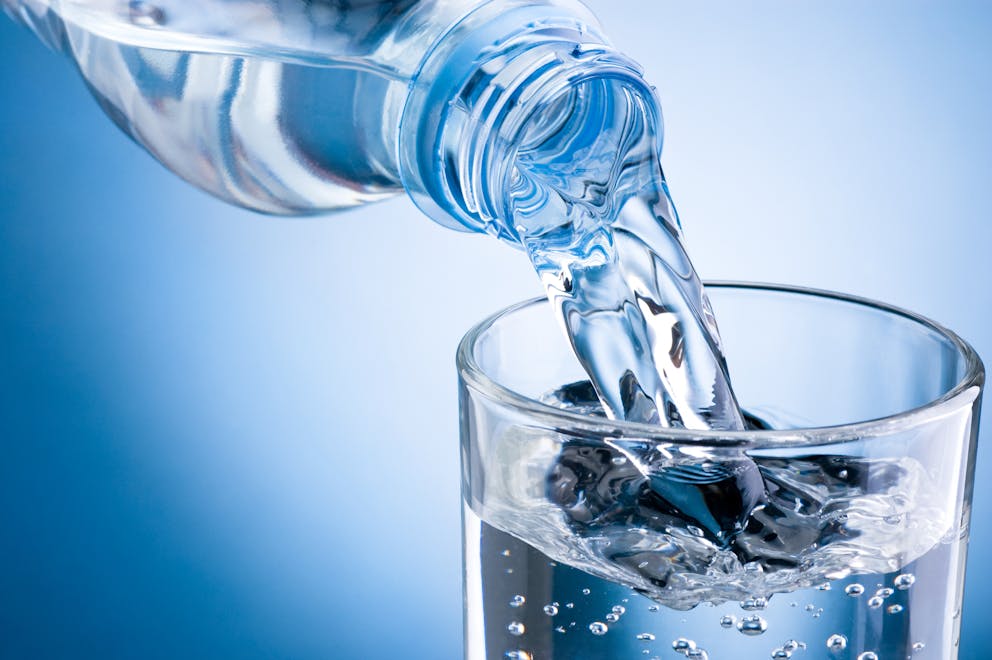Is Carbonated Water Healthier?
Debates about water are becoming increasingly common as more and more brands come into existence and different kinds are becoming more widely available. In particular, people often wonder if carbonated water is a better option than tap.
Learn about carbonated water, what it contains, and how it affects your health.
Exploring the Digestive Benefits of Carbonated Water
Have you ever popped open a can of carbonated water and felt that satisfying fizz? Beyond its refreshing feel, many people talk about how it can help with digestion.
The Role of Carbonic Acid in Digestion
You're not just swallowing air bubbles when you guzzle down carbonated water. The fizz is due to carbon dioxide gas dissolving under pressure into the water, forming weak but significant carbonic acid.
This mild acid can work with your stomach’s natural acidity level and help get the digestive system going.
A splash here and there might make for an easier time breaking down meals because this subtle change in pH levels may encourage better digestion—akin to adding a bit more seasoning for optimal flavor balance in cooking.
Anecdotal evidence points toward people feeling less bloated or experiencing less indigestion when they include some sparkle in their sipping habits.
Don't confuse sparkling mineral waters with artificial soft drinks; we're talking naturally infused CO2.
While cola has an aggressive pH level of around 2.5, sparkling waters like Perrier are far gentler on the system at around 5.5-5.8 pH compared to plain bottled water’s neutral stance at 7.
 Understanding Acidity in Beverages
Understanding Acidity in Beverages
The tingle on your tongue from carbonated water isn't just fun—it's science at work. These fizzy drinks owe their kick to a lower pH, thanks to dissolved CO2.
Even brands like Perrier fall into this category with a mild acidity level ranging from 5.5 to 5.8.
In contrast, regular bottled water sits at a neutral pH of 7.
Stomach Acidity and Beverage pH
If you think that sounds acidic, stomachs rank between 1-3 on the pH scale. Your belly is more acidic than most beverages.
That same fizziness can work well with digestion because it mimics our gastric environment, just less extreme.
Coca-Cola might boast its signature burn with an intense acid hit at around 2.5 but it will not help to settle your stomach.
The Variety of Carbonated Waters Available
Who knew bubbles could be so complex? Not all carbonated waters are created equal.
Seltzer Water and Its Digestive Impact
You've probably heard seltzer water being praised as the zero-calorie hero for those looking to cut down on sugary sodas.
But beyond its waist-friendly appeal, seltzer is plain water jazzed up with carbon dioxide gas under pressure—no added minerals or flavors.
This can help settle the stomach as it is easy to process.
Club Soda's Mineral Content
Club soda has a sprinkle of mineral-like ingredients such as sodium bicarbonate, sodium citrate, or potassium sulfate.
Think of it like adding seasoning to food; these minerals enhance flavor while potentially offering some tummy-pleasing benefits.
This bubbly concoction may aid digestion by nudging along stubborn meals sitting heavy in your gut.
Tonic Water's Historical Use
Tonic water was used initially as an anti-malaria medication thanks to quinine, which gives it its characteristic bitter taste.
While modern tonic water contains less quinine than its medicinal ancestor did once upon a time, it could have potential digestive benefits.
Consult a medical professional prior to adding this to your regular hydration routine.
Personal Preference and Digestive Health
Ever noticed how a fizzy drink can settle your stomach after a big meal? It's not just in your head. Carbonated water could do you more good than you think, but it's not for everyone.
Considering Individual Health Conditions
Your gut is as unique as your fingerprint, so what works for one person might not sit well with another. For some, the bubbles in carbonated water are like a mini massage for their GI tract, helping to relieve bloating and aid digestion.
But if you're prone to heartburn or acid reflux, that same bubbly beverage could spell trouble by relaxing the lower esophageal sphincter, leading to indigestion. So, while there's no one-size-fits-all answer here, understanding your body's reactions is critical.
Suppose carbonated water makes you feel great – fantastic. But if it leaves you feeling gassy or uncomfortable, non-carbonated options may be better for your gut health.
Potential Benefits of Weak Acids in Digestion
The fizzy sensation from carbonated water can work wonders on your insides.
Carbonic acid is a weak acid formed when CO2 dissolves in water. This doesn’t stick around long and has a more gentle touch than the more vital hydrochloric acid naturally found churning in your belly.
Myths and Misconceptions About Carbonated Water
There are many misconceptions about the role of carbonated water in your body, so it's important to look into the science behind this drink.
The Role of Carbonic Acid in Digestion
You might've heard that the carbonation in sparkling waters can mess with your digestion, but the truth is that carbonic acid buffers stomach acidity.
People who sip on carbonated water often report feeling like it helps their digestive process rather than hindering it.
Too much fizz could lead to temporary bloating or discomfort for some people, but when consumed in moderation, many find that bubbly water can be quite soothing after a meal.
How Carbonation Techniques Differ
How these waters are infused differs from brand to brand. It is important to understand the process, so that you can make the best decision for your health.
The Role of Artificial Carbonation
Most carbonated waters on supermarket shelves get their fizz from artificial carbonation, a process where manufacturers force carbon dioxide into still water under high pressure.
This contrasts sharply with naturally sparkling mineral waters from springs or wells containing natural gases, which is naturally infused with nutrients.
CO2 Cartridges vs. Commercial Bottling
At-home carbonators using small CO2 cartridges allow you to carbonate your own water.
On an industrial scale, though, commercial bottlers use massive machines to ensure every bottle has consistent levels of fizz.
The method used affects the texture and experience.

Impact of Carbonated Water on Digestion
The impact of carbonated water on liver health is generally considered benign, and it can even contribute to aiding digestion by promoting a feeling of fullness.
However, it's essential to be mindful of its consumption in the context of potentially dehydrating drinks.
Some carbonated beverages, especially those containing caffeine or high sugar content, may have diuretic effects, potentially leading to dehydration.
While carbonated water is hydrating, pairing it with moderation and awareness of overall beverage choices ensures a balanced approach that supports digestion and liver well-being.
Conclusion
Carbonated water, with its refreshing fizz, offers several digestive benefits thanks to carbonic acid, which can aid in digestion by mimicking the stomach's natural acidity.
However, it’s important to differentiate between various types of carbonated waters, such as seltzer, club soda, and tonic water, each with unique characteristics and effects on the body.
While some find that carbonated water helps alleviate bloating and improve digestion, others, particularly those prone to heartburn or acid reflux, might experience discomfort.
Understanding your body's unique response is crucial, and consulting a healthcare provider before making significant changes to your hydration routine is always advisable.
Ultimately, the choice between carbonated and tap water should be guided by personal preference, health considerations, and a balanced approach to overall hydration.
Previous blog
What Breaks a Fast?Next blog
Why am I NOT Losing Weight, Only Inches?Tags

Popular
08/21/2024
55K views
02/23/2025
46.3K views
11/18/2024
277.5K views
03/18/2024
11/21/2022




